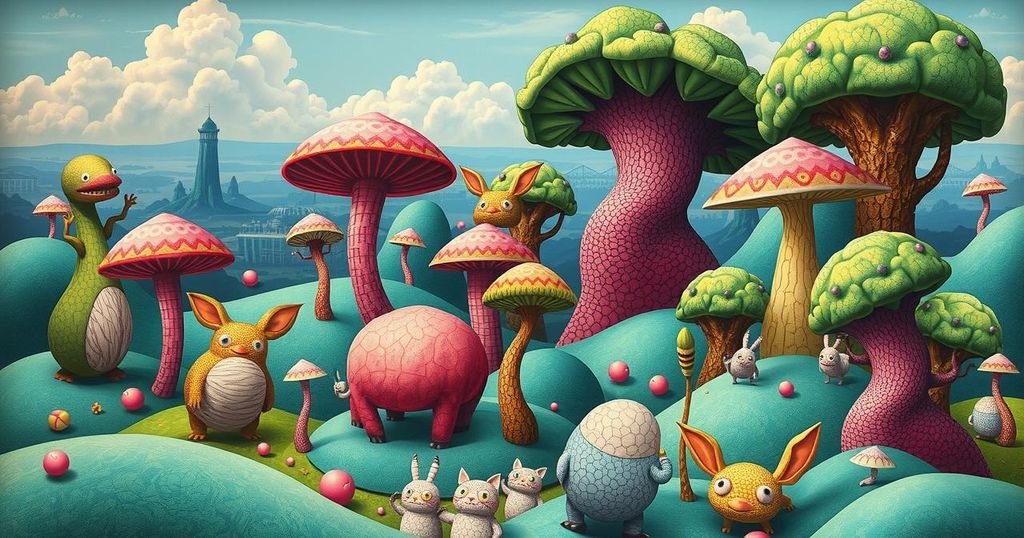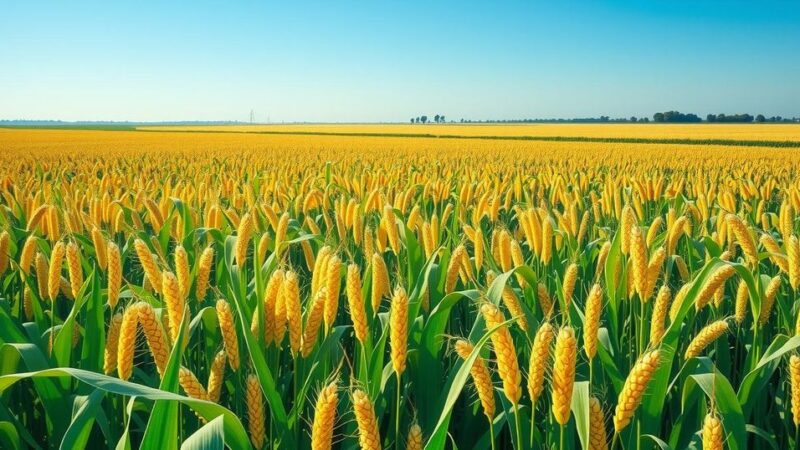This article humorously explores 14 bizarre consequences of climate change, highlighting how these absurd effects can provide some relief from eco-anxiety while emphasizing the serious implications of global warming on nature and society.
Navigating the realities of climate change can be a daunting undertaking; however, humor may provide a necessary reprieve. Experts suggest that laughter can alleviate stress and ease the mental strain associated with eco-anxiety. In light of National Laugh Day, this article presents a list of perplexing and humorous consequences stemming from global warming, showcasing the more absurd elements of our changing planet.
1. A Croaking Chorus: The coquí frogs in Puerto Rico are experiencing physical changes as they shrink in size. Simultaneously, their mating calls have become increasingly louder and higher-pitched, resulting in an unexpected natural spectacle reminiscent of a miniature opera.
2. Baseballs Are Going, Going… GONE!: A 2023 study indicates that global warming is altering air density, which may enhance the distance baseballs travel when hit. By 2100, it is projected that home runs could be 10% more frequent, leading to potentially impressive but uncomfortable game conditions.
3. A Condiment Crisis: Hot sauce enthusiasts may soon face a shortage as extreme weather disrupts agricultural production. Manufacturer shortages of essentials like Sriracha and Dijon mustard are reminders that climate change is impacting not just biodiversity but also culinary flavors.
4. City Rats Are Thriving, and We’re Not: Urban rat populations are ascending due to rising temperatures, which extend their breeding seasons. As these rodents flourish in cities, human concerns about climate change abound.
5. Lions & Tigers & … Grolar Bears?: Climate change and habitat loss have driven species to interbreed, producing hybrids such as the grolar bear (a mix of grizzly and polar bear) and the coywolf (coyote and wolf). Such adaptations speak to the challenges wildlife faces amid environmental changes.
6. The Invasion of the Jellyfish: Jellyfish populations are spreading to new regions, with sightings in UK and Irish waters increasing by 32% in 2023. Warmer seas are pushing these creatures into unexpected territories, leading to the potential for unwelcome encounters.
7. Beware of Shark-Infested Waters: Rising ocean temperatures are prompting sharks to enter new habitats, raising concerns about unexpected shark encounters. Despite increased fears, the likelihood remains low, promoting a sense of cautious engagement with marine activities.
8. Withering Wine Grapes: Extreme environmental conditions are affecting grape cultivation, resulting in wines with unexpected flavors. According to the BBC, the combination of heat and wildfires has altered the profile of certain wines, impacting connoisseurs’ experiences.
9. Satellites Are Speeding Up: Changes in the thermosphere due to carbon emissions affect drag on satellites. Increased speeds may lead to a higher likelihood of collisions, thereby disrupting service across GPS, cellular networks, and television broadcasts.
10. Aquatic Anosmia: Ocean acidification negatively impacts fish olfaction, impairing their navigation and survival instincts. With carbon dioxide levels rising significantly since the Industrial Revolution, many marine species face challenges in foraging and avoiding predators.
11. Who Dimmed the Lights?: Rising sea temperatures are diminishing lower cloud cover that normally reflects sunlight, leading to increased heat retention on Earth. This phenomenon not only exacerbates climate change but also affects the planet’s overall brightness.
12. Bless You!: The pollen season has extended by 21% between 1990 and 2018 due to longer spring periods. Individuals suffering from allergies may experience intensified symptoms, highlighting another impact of climate change on health and well-being.
13. Mummy-Hungry Bacteria: Certain bacteria are degrading South American Chinchorro mummies due to increased humidity. This surprising consequence demonstrates how climate change affects even historical artifacts.
14. Trees Are Growing Faster (But That’s Not Necessarily a Good Thing): Some European forests are experiencing accelerated growth attributed to higher carbon dioxide levels. While this may benefit paper companies, it disrupts ecological balance and raises questions about long-term consequences.
Comedy has long been a means of coping with adversity, and climate change is no exception. Research indicates that humor can foster receptiveness to serious dialogue, making it a useful tool for advocating climate awareness. EARTHDAY.ORG encourages readers to incorporate these odd yet fascinating facts into environmental initiatives. Participation in Earth Action Day Roundtable events offers another avenue for engaging with climate issues proactively.
In summary, the humorous consequences of climate change provide a unique lens through which we can examine the serious implications of our rapidly altering environment. From peculiar animal adaptations to unexpected changes in food production, these bizarre effects underscore the far-reaching impacts of global warming. By integrating humor into discussions surrounding climate change, we can foster greater engagement and awareness, thereby promoting action for a more sustainable future.
Original Source: www.earthday.org






